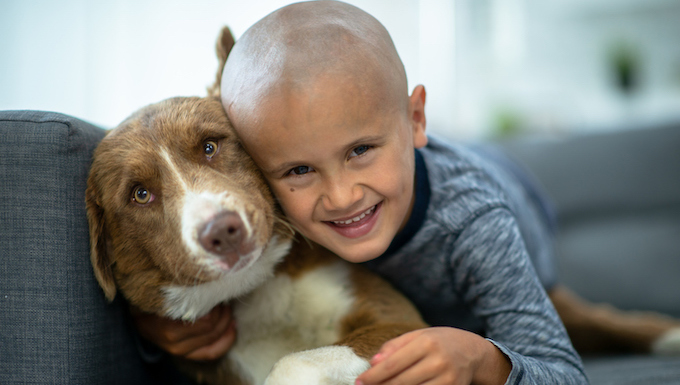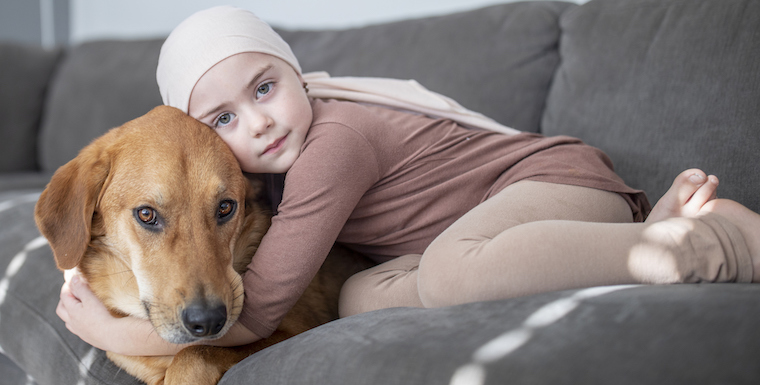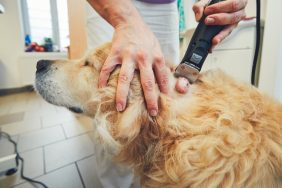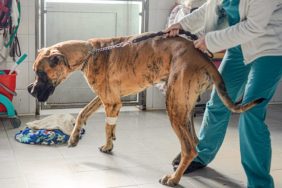
A unique clinical trial with dogs could help treat sarcoma, one of the most common forms of childhood cancer.
News Medical reports that Telethon Kids Institute is using a gel filled with immunotherapy drugs to treat sarcomas in dogs. Eventually, the Institute plans to introduce the treatment to children suffering from the same disease.
What Is Sarcoma?
According to the article, “Sarcoma is a cancer of the bones and soft tissues and is the third most common cancer in children, with one in three dying from their disease.”
Typically, the first step after diagnosis is to surgically remove the tumor. However, the chances of a tumor reforming are significant. Ideally, the gel will help mitigate the chances of a resurgence.
According to Joost Leisterhuis, head of the Institute’s Cancer Centre, sarcoma treatments have stalled over the last 30 years. Alarmingly, current methods expose children — and dogs — to toxic doses of radiation and chemotherapy. Contrastingly, Professor Leisterhuis said, “With the immunotherapy gel, the surgeon would remove the tumor and apply the gel before closing the wound…Then[,] over time, the immunotherapy drugs get to work — drawing immune cells from all over the body…to mop up any remaining cancer cells.”
Clinical Trials on Dogs Could One Day Save Children’s Lives
Researchers at Perth Vet Specialists are now treating dogs diagnosed with sarcomas using the gel.
“Surprisingly, sarcoma is one of the most common cancers in pet dogs,” said Professor Leisterhuis. As such, the treatment — surgical removal — is exactly the same.
So far, the treatment has been tested on seven dogs, and the results are inspiring confidence. Dr. Wyatt from Perth Vet Specialists says, “Everybody’s winning – the dogs are getting treatments they would otherwise not have access to and they’re also doing something that could ultimately help children with cancer.” Dr. Wyatt also related that, since sarcoma is actually more common in dogs than people, the treatment is immensely helpful for treatment.
Hopefully, the gel’s continued success will allow for safer sarcoma treatments for dogs and people. As Professor Leiterhuis said, “Our dream in the end is that with these sorts of immunotherapies we can replace chemotherapy and radiotherapy [altogether].”









